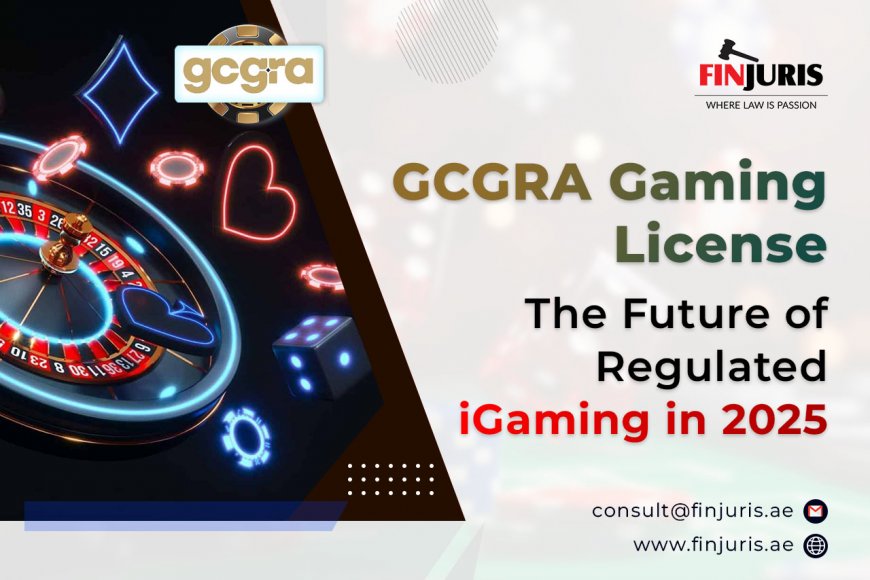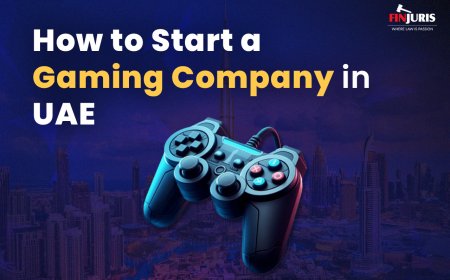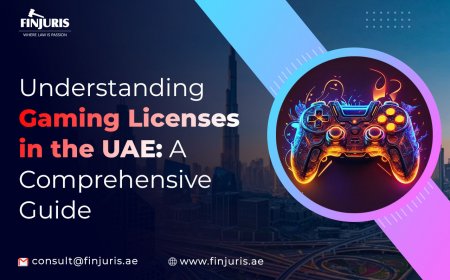GCGRA Gaming License: The Future of Regulated iGaming in 2025
Explore how the GCGRA gaming license is shaping the future of regulated iGaming in 2025 with compliance, innovation, and security.

In the increasingly complex world of online gambling regulation, the General Commercial Gaming Regulatory Authority (GCGRA) has emerged as a modern, business-friendly regulator for digital gaming operators worldwide. The GCGRA gaming license offers a compelling combination of speed, affordability, and international legitimacy—making it a top choice for startups and mid-tier gaming ventures in 2025.
From online casinos and betting platforms to NFT-based games and crypto-integrated gaming services, operators are now actively seeking GCGRA licensing to scale across global markets with legal credibility and compliance resilience.
This guide explores everything you need to know about the GCGRA gaming license—its regulatory advantages, licensing process, requirements, scope of authority, and why it is becoming the license of choice for digital gaming entrepreneurs.
What Is the GCGRA?
The General Commercial Gaming Regulatory Authority (GCGRA) is an independent regulatory body established to license and oversee online gaming operators, primarily those offering commercial digital gambling and entertainment services. The authority was formed with the mission of supporting global gaming innovation while enforcing high standards of player protection, anti-money laundering compliance, and technical integrity.
GCGRA provides a structured legal framework for gaming businesses seeking regulatory oversight without the burdensome bureaucracy or excessive capital requirements associated with legacy jurisdictions.
Read More: Understanding the General Commercial Gaming Regulatory Authority (GCGRA) Gaming License in the UAE
What Does a GCGRA Gaming License Cover?
The GCGRA gaming license offers a broad scope of permissions, making it ideal for diverse gaming models:
- Online casino operations (blackjack, roulette, baccarat, slots)
- Sports betting and odds-based platforms
- Peer-to-peer poker and rummy platforms
- Fantasy sports and eSports wagering
- Sweepstakes and promotional contests
- Blockchain games and crypto betting services
- NFT-based raffles, lotteries, and hybrid play-to-earn models
With a single GCGRA license, operators can typically offer multiple game verticals, reducing the need for separate sub-licenses or complex multi-jurisdictional frameworks.
Read More: GCGRA Gaming License: The Future of Regulated iGaming in 2025
Why Choose a GCGRA Gaming License?
1. Global Operability
While not tied to a specific nation-state’s gaming treaty, the GCGRA license is recognized by many financial institutions, payment processors, and software vendors as a valid operating license for international B2C platforms.
2. Crypto Compatibility
Unlike many older regulatory authorities, GCGRA is forward-looking in its acceptance of virtual currencies. Operators can integrate Bitcoin, Ethereum, and stablecoins into their platforms under proper KYC/AML procedures.
3. Lower Cost of Entry
GCGRA licenses are significantly more affordable than those in Malta, Isle of Man, or the UK—making them ideal for startups and mid-sized operators. Total first-year licensing and operational costs are often below USD $25,000.
4. Fast Turnaround Time
While most Tier 1 jurisdictions may take 6–12 months to process applications, the GCGRA offers a faster review cycle—often granting licenses within 4 to 8 weeks, assuming complete documentation.
5. Broad Product Coverage
Rather than issuing segmented licenses for each game type, GCGRA typically offers an umbrella license that allows operators to launch multiple products (casino, sports, crypto) under one legal structure.
Licensing Requirements
While the GCGRA offers a streamlined framework, it does enforce modern compliance standards. To obtain a license, applicants must:
- Incorporate a legal entity with appropriate gaming business objects
- Submit a detailed business plan with financial projections
- Demonstrate experience or competency in gaming, technology, or operations
- Provide a description of technical architecture and RNG (Random Number Generator) certification
- Appoint key responsible persons, including a Compliance Officer
- Submit anti-money laundering and responsible gaming policies
- Undergo KYC screening for shareholders, directors, and beneficial owners
Crypto operators must also provide wallet infrastructure details and transaction monitoring systems for AML/CFT compliance.
The Licensing Process
Step 1: Initial Review and Pre-Screening
Applicants provide a business summary and pre-qualification details. A preliminary eligibility check is conducted by the GCGRA.
Step 2: Company Formation
An operating company is incorporated in a designated jurisdiction approved by the GCGRA.
Step 3: Documentation Submission
Applicants must submit:
- Articles of Incorporation
- Director and shareholder KYC documents
- Game software certifications (where applicable)
- Compliance manuals (AML, player protection, fraud detection)
- Technical and hosting architecture documentation
Step 4: Background Checks
GCGRA conducts background reviews on owners and controllers to ensure integrity, solvency, and lawful source of funds.
Step 5: Final Evaluation and Approval
If all conditions are met, a full gaming license is issued, typically valid for 1–3 years with annual renewals.
Cost Breakdown (Indicative)
|
Expense Category |
Estimated Cost (USD) |
|---|---|
|
Application Fee |
$3,000 – $5,000 |
|
Annual Licensing Fee |
$10,000 – $15,000 |
|
Company Incorporation |
$1,500 – $3,000 |
|
Legal & Compliance Advisory |
$5,000 – $10,000 |
|
Hosting & Infrastructure |
Variable |
Post-Licensing Obligations
Once licensed, operators must maintain the following:
- Ongoing KYC and AML compliance
- Quarterly operational reporting to GCGRA
- Timely payment of renewal and supervision fees
- Annual audit (if required by turnover threshold)
- Player complaint handling mechanisms
- Secure, verifiable transaction logs
Operators may also be subject to spot audits or requests for technical testing of their platform.
Who Should Apply for a GCGRA License?
The GCGRA gaming license is ideal for:
- Startups launching new gaming or betting platforms
- Crypto casino operators seeking legal recognition
- Fantasy sports or skill-based game platforms expanding globally
- Game aggregators or white-label providers needing compliance protection
- Operators de-risking from over-regulated jurisdictions
Read More: Casino Gaming License: A Complete Guide for Operators
Limitations and Risk Considerations
While the GCGRA gaming license provides global reach, it does not authorize marketing or operations in blacklisted or banned jurisdictions. Operators must geo-restrict users in regions like the U.S., UAE, and others with strict gambling prohibitions—unless separately licensed.
Read More: Gaming License in UAE: Key Developments and What It Means for Investors
Additionally, payment gateways may still request secondary due diligence based on their internal risk ratings.
The GCGRA gaming license offers a modern, agile, and business-friendly alternative to traditional regulatory regimes. With flexible product scope, crypto compatibility, and lower capital barriers, it is rapidly becoming the go-to option for gaming entrepreneurs, Web3 projects, and international operators seeking compliance without complexity.
Whether you're launching a DeFi-enabled casino, a mobile sportsbook, or an NFT-based raffle game, securing a GCGRA license gives your platform the legal clarity and operational confidence to grow.
What's Your Reaction?




















